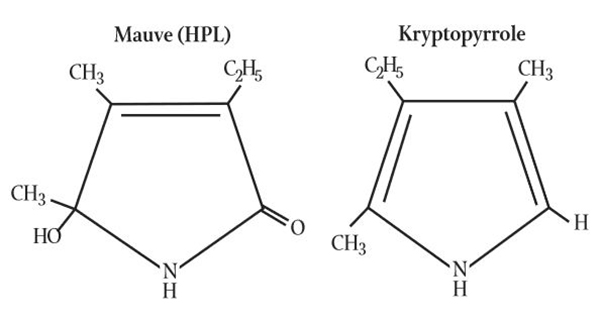
Understanding Pyroluria and Treatment Potential with Supplements
When your body makes hemoglobin, which is the oxygen carrier in your blood, it also produces something called pyrroles as a natural byproduct. Usually, they don't cause any issues. But in some cases, like with pyroluria, there's an overproduction of these pyrroles. They start binding to specific nutrients – notably zinc and vitamin B6 – that are crucial for our health, and this leads to these nutrients being unnecessarily lost in urine.
The Role of Stress and Nutrient Levels
The condition has been especially highlighted by Dr. William Walsh's approach, emphasizing that it's quite common and can be triggered or worsened by stress – whether that's stress experienced while in the womb, during childhood, or in adult life. Stress can deplete our body's stores of key nutrients, and when we're already low on these, our body's systems that manage these biochemical pathways can become overwhelmed.
Pyrroles, unfortunately, can contribute to inflammation in the body. This means that when they're in overdrive, they create an extra need for vitamin B6, zinc, antioxidants, omega 6 fatty acids, and a full array of vitamins and minerals for pyroluria. While we usually get these from a healthy diet, in the case of pyroluria, the body may require more than what food alone can provide – hence the potential need for supplementation.
There are a few articles regarding pyroluria on the Second Opinion Physician website explaining more about pyroluria. While there are no known cures, it is most important is to accommodate for the lost nutrients. Also, reducing stress – physical and emotional, improving sleep, managing diet to avoid toxins, improving gut health with digestive aids, managing parasites and dysbiotic bacteria, and avoid dietary glutamates, allergens and unnecessary medications. Supplementation should give noticeable improvement. Dosages may need to be increased on zinc and b6 during times of excessive stress.
The Importance of Supplementation
According to proponents of pyroluria treatment like Dr. Walsh, proper supplementation can replenish these lost nutrients. The Walsh Approach has drawn significant attention to the potential benefits of supplementation for managing this condition.
Common Symptoms of Pyroluria
Walsh Research Institute director William Walsh PhD, and physicians familiar with managing pyroluria, note symptoms of pyroluria quite commonly include more than a few of the following symptoms.
| Behavior | Mood | Physical Symptoms | Diet and Environmental Sensitivities |
|---|---|---|---|
| Severe Inner Tension | Severe Anxiety | Premature Graying of Hair | Affinity for Salty or Spicy Foods |
| Poor Stress Control | ADHD | Psoriasis | Sensitive to Cheap Metallic Jewelry |
| Obsessions With Negative Thoughts | Autoimmune Disorders | Poor Muscle Development | Sensitivity to Sounds or Lights |
| Memory Loss | Severe Depression | Poor Growth, Delayed Growth | Skin Easily Sun-Burned, Poor Tanning |
| Reading Disorder | Sensitivity to Loud Noises | Mauve Colored Urine | Irregular Sleep and Eating Behaviors |
| Underachiever | Abnormal Fat Distribution | Morning Nausea | |
| Delicate Facial Features | Difficulty With Academics | ||
| Poor Wound Healing |
For people with these symptoms, especially if they've had a lot of stress in their lives, getting checked for pyroluria and exploring the idea of supplementation could be a worthwhile step. It's about giving the body back what it needs to function optimally, which sometimes means more vitamins and minerals than we can get from our diet alone.
